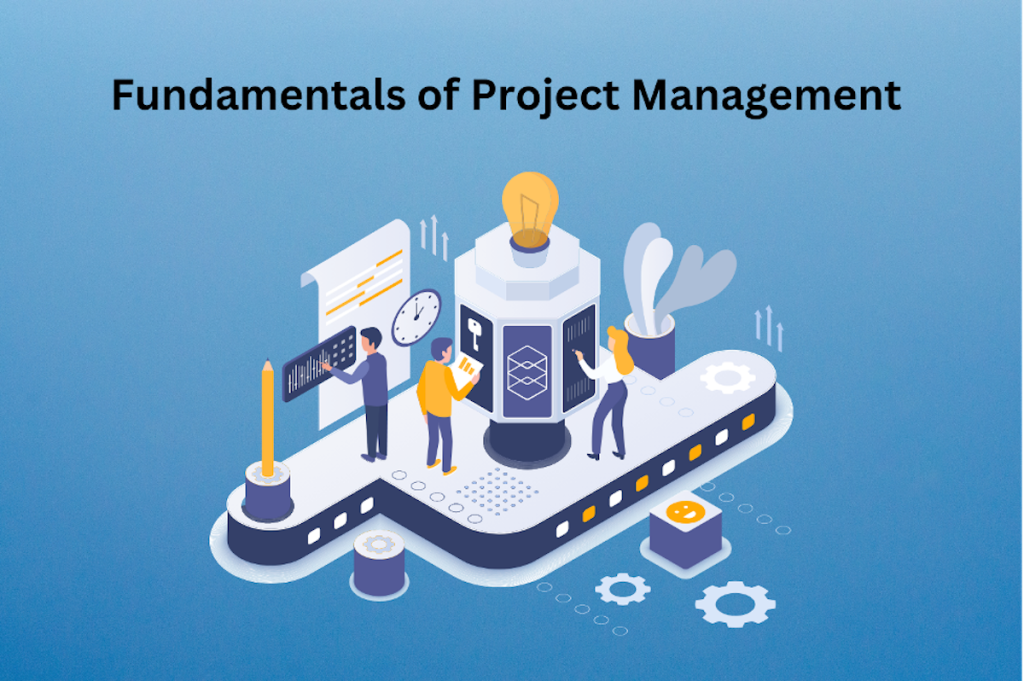The fundamentals of Project Management are essential to driving growth and success within the organisation. Deep knowledge of the fundamentals is the cornerstone of a project’s success for professionals or project managers. Implementing various strategies is possible if you know the fundamentals well.
In this blog, you will clearly understand the seven fundamentals of project management that every Project Manager needs to know to complete projects effectively. If Project Management interests you, consider getting Project Management Certification to prepare yourself for the project management industry. Let’s start the blog by understanding What is Project Management.
Contents
What is Project Management?
Project Management implements knowledge, skills, tools, and techniques to accomplish a predefined objective. It involves multiple people to reach a business outcome within a given time frame and budget. Project Management helps team members plan, execute, and deliver projects efficiently and effectively.
Fundamentals of Project Management Process
The seven Fundamentals of Project Management enable you to become a thriving Project Manager. Here are the seven Project Management fundamentals:
Process groups
Process Groups have five phases in the Project Management life cycle. Let’s explore them below:
- Initiation: This phase defines the project, where the Project Managers transform the stakeholders’ vision into an achievable outcome. The Project Manager discusses expectations, deliverables, time, budget, and other constraints with clients.
- Planning: This phase involves assigning tasks to team members. It revolves around methodologies, resources, and strategies during the execution process.
- Execution: This phase is where the actual work starts on the project. It deals with implementing the plan into action and achieving goals. The real challenges can be identified at this phase. The project manager collaborates and communicates with the stakeholders and team members of the operations team, and finally, a successful project is delivered.
- Monitoring: At the beginning of the project, Key Performance Indicators (KPI) are assigned by the project manager. The Project Manager monitors the project’s progress and KPIs. It covers three aspects: cost and effort tracking, deliverables and objectives, and performance and progress.
- Closure: This phase begins when the project is finalised. The Project Manager terminates the contract with third parties, reviews the project, and checks the budget.
Cost Management
Cost Management is essential in Project Management. It involves estimating, budgeting, and controlling costs to keep expenses within the planned budget and organisational requirements. The process helps the organisation forecast future costs and minimise the chance of budget overruns. Careful and practical planning is the key to successful and effective cost management.
Risk Management
Risk Management involves identifying, monitoring, and creating mitigation strategies throughout the project lifecycle. The Risk Management steps include:
Identifying analysing risks
- Assigning ownership to team members for risks
- Prioritising each project risk
- Planning response and respond
- Monitoring risk
Task Management
Task Management is one of the significant pillars of Project Management. It covers identifying, monitoring, and orchestrating tasks. The Project Manager ensures that tasks are completed within a predefined time and budget.
Project constraints
Project constraints are often considered the Project Management triangle. Each project has three unavoidable constraints: cost, time, and scope. Cost constraints require managing the budget within its predetermined restrictions. Time constraints cover planning, monitoring, and executing the project schedule. Scope constraints involve defining the scope of the project at the beginning.
Project Communication Management
Good communication allows the project to run smoothly without any delay. The project Manager outlines how the communication will work across teams. It will include the following steps:
- Clarifying the project purpose
- Identifying the target audience
- Crafting the message
- Selecting the communication channel
- Establishing a timeline
Change Management
Change Management involves identifying, evaluating, and implementing change in the project. These changes are based on the clients’ and stakeholders’ needs and requirements. It relies on the following four principles:
- Understanding change
- Planning change
- Implementing change
- Communicating change
Advantages of Effective Project Management
The success of all projects depends on Effective Project Management. Proper guidance from the Project Manager helps to meet the business goals, ensuring the project delivers value to the company. Let’s find out the advantages of effective Project Management.
- Achieving business goals: Businesses can obtain a return on investment by effectively handling the project.
- Customer satisfaction: Meeting customers’ requirements increases customer satisfaction.
- Resource optimisation: The optimisation of project resources, such as time, money and personnel, will lead to increased efficiency and reduced costs
Conclusion
We hope you read and understand everything about Project Management fundamentals. By applying these principles, Project Managers can achieve optimal results. Keep exploring and refining your Project Management Skills for continued success in diverse projects.

